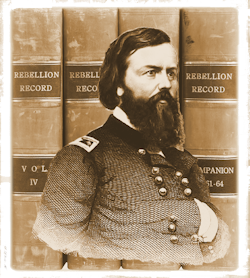February 21.—The Richmond Whig, of this date, has the following: “We had not supposed it was seriously contemplated in any quarter to call out into active service the whole male population of the State. The proposition of Governor Letcher, to have all over sixteen and under sixty five, in cities, drilled for the defence of their respective localities, is a different affair. That may be practicable, and, under circumstances, might be desirable. But we have very great doubts whether such a mass would effect more good than mischief. But in respect to the rural districts, to call out the whole male population over sixteen and under sixty-five, or even between eighteen and forty-five, would be a mischievous and inexcusable folly. In the first place, we have not arms to put in their hands. That objection alone is sufficient. In the second place, it would ruin the industrial pursuits of the State, and leave us without the means of prosecuting the war beyond the present session.
“We hear that the rage for volunteering is greater than it has been since the beginning of the war. There will be no want of men, without any extraordinary legislation, if they can only get arms and leaders to conduct them against the enemy. If there should be any deficiency, it could be easily supplied by a draft on the superabundance of ‘able-bodied’ young men in the Commissary and Quartermaster’s Department.
“Far better this expedient than to draw the boys from their books, and the old men from their useful labors.”
—Rumors of the partial evacuation of Manassas, Va., by the rebels, were prevalent in Washington to-day, but they were not generally credited.
—A Battle took place, to-day, about seven miles from Fort Craig, near Valverde,[1] on the Rio Grande, New-Mexico, between the rebel forces under Col. Steele, and the National forces commanded by Col. Canby. The battle lasted from nine o’clock in the morning till sundown, and resulted in the defeat of the National troops, who were obliged to retreat to the Fort. McRae’s battery of six pieces was captured by the rebels, after a gallant defence in which Capt. McRae was killed.— (Doc. 55.)
—Capt. Nathaniel P. Gordon, commander of the slave-ship Erie, was executed at New-York, according to sentence. About three o’clock in the morning he attempted to commit suicide by swallowing strychnine, which he had concealed in his cell, but the exertions of three physicians managed to prolong his life sufficiently to allow the execution, which took place at a quarter past twelve o’clock.
—The first battalion of Connecticut cavalry, three hundred and twenty-five men, under the command of Major Judson M. Lyon, passed through New-York City en route for Wheeling, Va., to join Gen. Rosecrans.
— The Massachusetts Thirty-first regiment, and five companies of the Thirteenth Maine regiment, sailed to-day from Boston, Mass., in the steamer Mississippi for Ship Island.
[1] Valverde is a small village, situated on the left bank of the Rio del Norte, or Rio Grande, near the border of New-Mexico and Arizona. Fort Craig is ten miles north of this point, on the same river. Col. Kit Carson, who is said to have done good service with his regiment, deployed as skirmishers, has had his headquarters at Albuquerque for some time, and appears to have arrived at the scene of conflict at a most opportune time.



